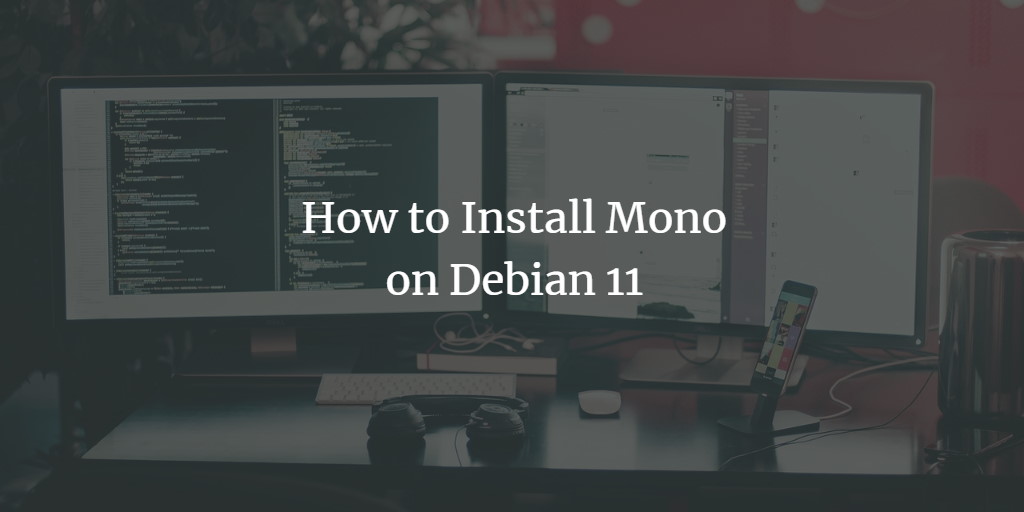Mono is an open-source platform designed to develop applications and libraries, with a strong emphasis on the .NET framework by Microsoft. Developed by Novell Inc. since 2002, Mono is predominantly used to create cross-platform tools and applications that integrate seamlessly with .NET technologies.
Mono offers a comprehensive CLR (Common Language Runtime) implementation, enabling the execution of class libraries or components aiming for Microsoft’s original .NET runtime. These libraries can function on any system with a current Mono version installed, including Linux, Mac OS X, Windows, Solaris, and BSDs. MonoTouch is utilized for iOS app development, while Android development can leverage Mono for Android programs.
With Mono, .NET Framework compatibility extends to non-Windows platforms at both library and application programming interface (API) levels. Consequently, programs developed for Microsoft .NET on Windows can run on Mono-supported platforms with little or no recoding necessary.
Mono-complete Linux refers to the use of the Mono framework as the principal platform for application development, allowing the operation of Microsoft .NET Framework executables via Mono’s Xamarin tool. Mono-complete Linux can coexist with other operating systems on a computer or possibly replace them entirely, depending on user preferences.
Prerequisites
Before installing Mono on Debian 11, ensure the following prerequisites:
- A server running Debian 11 with an internet connection.
- An account possessing sudo privileges.
Updating the System
To begin, update your system using the commands below:
sudo apt-get update
sudo apt-get upgrade -y
Once updated, install the necessary dependencies:
sudo apt-get install gnupg dirmngr apt-transport-https ca-certificates -y
Ensure no previous Mono versions exist on your system to avoid conflicts. Remove any existing Mono installations:
sudo apt remove --purge --auto-remove mono-runtime
Installing Mono
With your system ready, initiate the Mono installation:
Add the Mono GPG key:
sudo apt-key adv --keyserver hkp://keyserver.ubuntu.com:80 --recv-keys 3FA7E0328081BFF6A14DA29AA6A19B38D3D831EF
Next, incorporate the Mono repository for the latest official Mono package:
sudo sh -c 'echo "deb https://download.mono-project.com/repo/debian stable-buster main" > /etc/apt/sources.list.d/mono-official-stable.list'
Update your system once more:
sudo apt-get update
Verify if Mono is accessible in your local repositories:
sudo apt search mono
Now, install Mono:
sudo apt-get install mono-complete -y
Confirm the successful installation of Mono:
mono --version
Validate the installed mono-complete package:
sudo apt-cache policy mono-complete
Testing the Mono Installation
To verify the Mono installation, create, compile, and run a simple Mono application.
Create a file named hello.cs using a text editor, e.g., Nano:
sudo nano hello.cs
Insert the following code:
using System;
public class HelloWorld
{
public static void Main(string[] args)
{
Console.WriteLine ("Hello World!");
}
}
- using System: Includes mscorlib for necessary program development types and entry points.
- public class HelloWorld: Defines a “HelloWorld” class derived from “Object”.
- public static void Main: Entry point for C# programs, taking string[] args as parameters.
- Console.WriteLine(“Hello World!”);: Outputs “Hello World!” to the console.
Save and exit the file with CTRL+X, Y, then Enter.
Compile the code into a bytecode executable:
mono-csc hello.cs
View the newly created executable file:
ls -l *.exe
Execute the program:
mono hello.exe
Conclusion
Mono is now ready on your Debian system, allowing you to create C# applications. For further details, refer to the official documentation. We hope this guide assists you in installing Mono effortlessly.
Frequently Asked Questions
What is Mono?
Mono is an open-source platform for developing applications using the .NET framework. It enables cross-platform compatibility for software written in C# and other .NET languages.
Is Mono compatible with the .NET framework?
Yes, Mono supports .NET Framework compatibility across multiple platforms, including Linux, macOS, and more, with minimal to no code adjustments needed.
Why should I remove earlier versions of Mono?
Removing previous Mono versions helps avoid potential conflicts and unexpected behaviors during the installation of the new version.
Can Mono work on ARM-based architectures?
Yes, Mono supports ARM-based architectures, allowing development and execution on devices such as Raspberry Pi.
Where can I find more documentation on Mono?
Visit the official Mono documentation page for comprehensive guides and resources.
